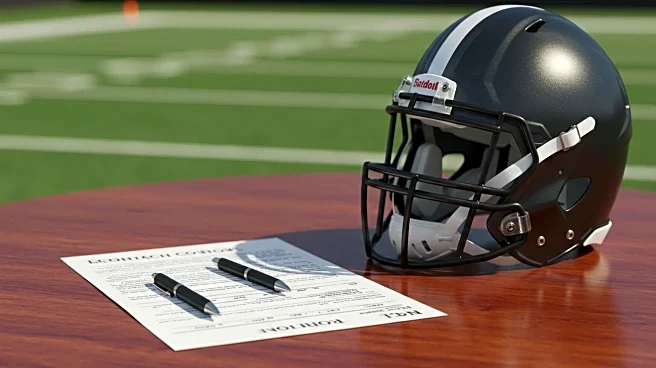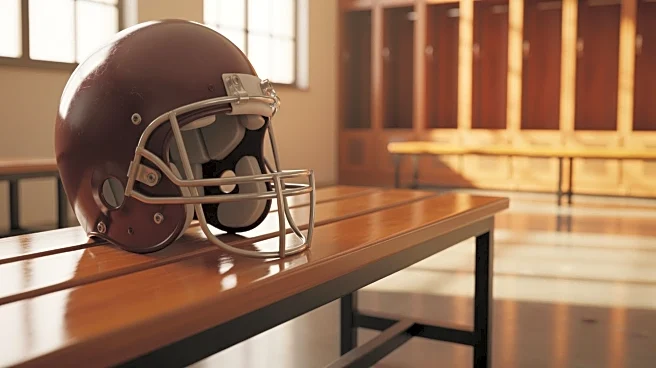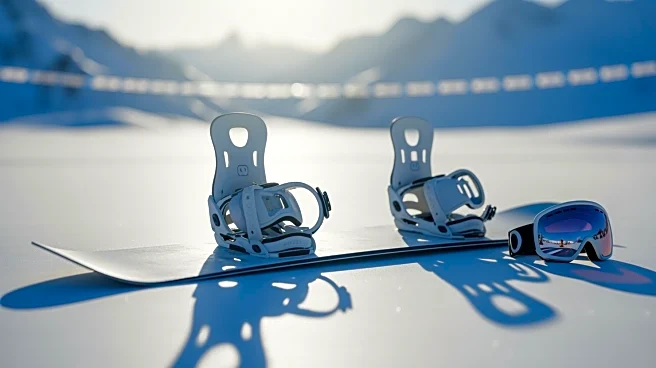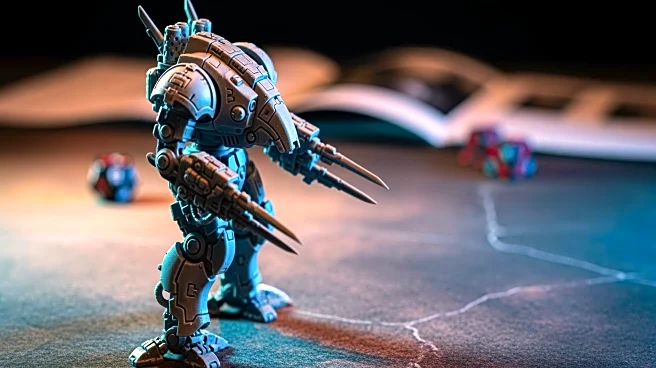What's Happening?
James Cook, the Buffalo Bills' star running back, made an unexpected decision during the team's first preseason game against the New York Giants. Despite being in uniform, Cook chose not to participate in the game, opting instead to remain on the sidelines. This decision is part of a strategic hold-in as Cook seeks to avoid injury while negotiating a potential contract extension. Cook is entering the final year of his current contract and has publicly sought a $15 million per year deal. However, it is anticipated that he might secure a contract similar to the three-year, $33 million agreement signed by Kyren Williams with the Rams. Cook's presence in uniform was unexpected, suggesting possible progress in negotiations.
Why It's Important?
Cook's decision to hold out during the preseason highlights the ongoing negotiations and the importance of securing a favorable contract extension. As a key player for the Bills, his absence from practice and games could impact team dynamics and performance. The situation underscores the broader trend of NFL players leveraging their positions to negotiate better contracts, reflecting the high stakes involved in professional sports. Cook's actions may influence other players in similar situations, potentially leading to shifts in contract negotiation strategies across the league.
What's Next?
The next steps involve continued negotiations between Cook and the Buffalo Bills. Fans and stakeholders will be watching closely to see if Cook's presence in uniform signals progress towards a new contract. The outcome of these negotiations could affect Cook's participation in upcoming games and the team's overall strategy. Additionally, reactions from teammates, such as MVP quarterback Josh Allen, who expressed support for Cook's decision, may play a role in the negotiation process.
Beyond the Headlines
Cook's hold-in raises questions about the balance between player safety and contract negotiations. It highlights the pressures athletes face in securing their financial futures while maintaining their physical health. This situation may prompt discussions on the ethical considerations of contract negotiations in professional sports, particularly regarding player welfare and the long-term implications of holdouts.









